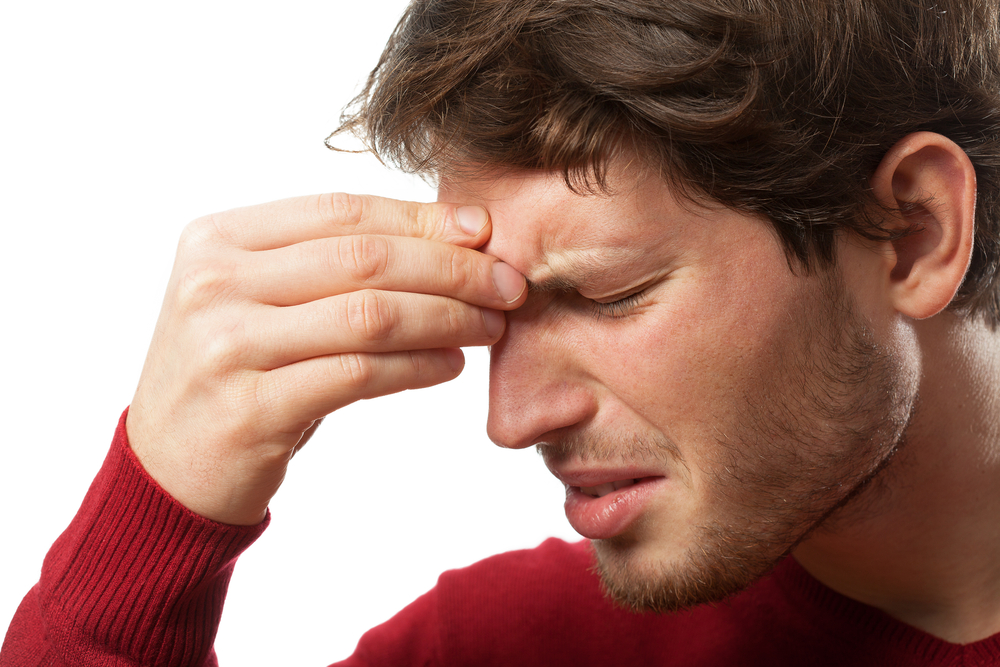Migraines aren’t your typical headache. They’re complex neurological conditions that can seriously disrupt your life. Unlike regular headaches, migraines bring on intense throbbing pain, along with nausea and sensitivity to light and sound.
And they’re more common than you might think, affecting about 1 in 7 people.
The pain and discomfort from a migraine can feel overwhelming, making it hard to focus or function. So finding ways to alleviate the pain and get back to your best as quickly as possible is really important.
How to get rid of a migraine
Step 1: Find a quiet, dark space
Sensitivity to light and sound is common during a migraine. Retreat to a quiet, dark room to minimise sensory stimulation and help ease your discomfort.
Step 2: Drink plenty of water
Dehydration can trigger or worsen migraines. Drink plenty of water throughout the day to stay hydrated and help improve your symptoms. Avoid caffeine and alcohol, as they can contribute to dehydration.
Step 3: Limit screen time
Excessive screen time, including staring at computer screens, smartphones, or televisions, can quickly worsen or bring on a migraine. Consider reducing your screen time or using blue light filters on electronic devices to minimise discomfort during a migraine episode.
Step 4: Apply a cold or warm compress
Place a cold compress or ice pack on your forehead or the back of your neck. The cold temperature can help numb the pain and reduce inflammation, providing relief from the throbbing sensation.
In some cases, applying heat to the affected area can help relax tense muscles and reduce migraine pain. Try using a heating pad or warm towel on your neck or shoulders to see if it provides relief.
Step 5: Reduce your stress levels
Stress and tension can often trigger or worsen migraine symptoms. Try relaxation techniques such as deep breathing, progressive muscle relaxation, or guided imagery to help calm your mind and body.
Step 6: Massage pressure points
Massaging specific pressure points, such as the temples, forehead, or the space between your thumb and index finger, may help to reduce migraine pain. Apply gentle pressure and massage in a circular motion for several minutes.
Step 7: Get enough sleep
Lack of sleep can trigger migraines in some people. Make sure you’re getting enough restful sleep each night by establishing a regular sleep schedule and creating a relaxing bedtime routine.
Step 8: Maintain a healthy diet
Certain foods and drinks, such as chocolate, aged cheese, and alcohol, may trigger migraines in some people. Pay attention to your diet and try to identify and avoid any potential triggers. Additionally, maintaining a balanced diet rich in fruits, vegetables, whole grains, and lean proteins may help reduce the frequency and severity of your migraines.
Step 9: Exercise regularly
Regular physical activity can help reduce the frequency and severity of migraines by improving blood flow and reducing stress. Aim for at least 30 minutes of moderate exercise on most days of the week, such as walking, swimming, or cycling.
Step 10: Keep a migraine diary
If you have regular migraines, keeping a migraine diary can help you identify triggers and patterns associated with your migraines, allowing you to make lifestyle changes or avoid triggers that may worsen your symptoms.
Remember, what works for one person may not work for another, so it’s essential to experiment with these strategies to find what provides you with the most relief. Additionally, if your migraines persist or worsen, you should consider speaking with your pharmacist or GP for further medical advice.
Frequently asked questions about migraines
How to relieve migraine pain at home?
To relieve migraine pain at home, try resting in a quiet, dark room, applying cold compresses, and practising relaxation techniques.
What are the best natural remedies for migraines?
Some of the best natural remedies for migraines include staying hydrated, managing stress through relaxation techniques, applying cold compresses, and massaging pressure points.
What lifestyle changes can help prevent migraines?
Lifestyle changes that can help prevent migraines include maintaining a regular sleep schedule, managing stress levels, staying hydrated, avoiding trigger foods, and incorporating regular exercise into your routine.


